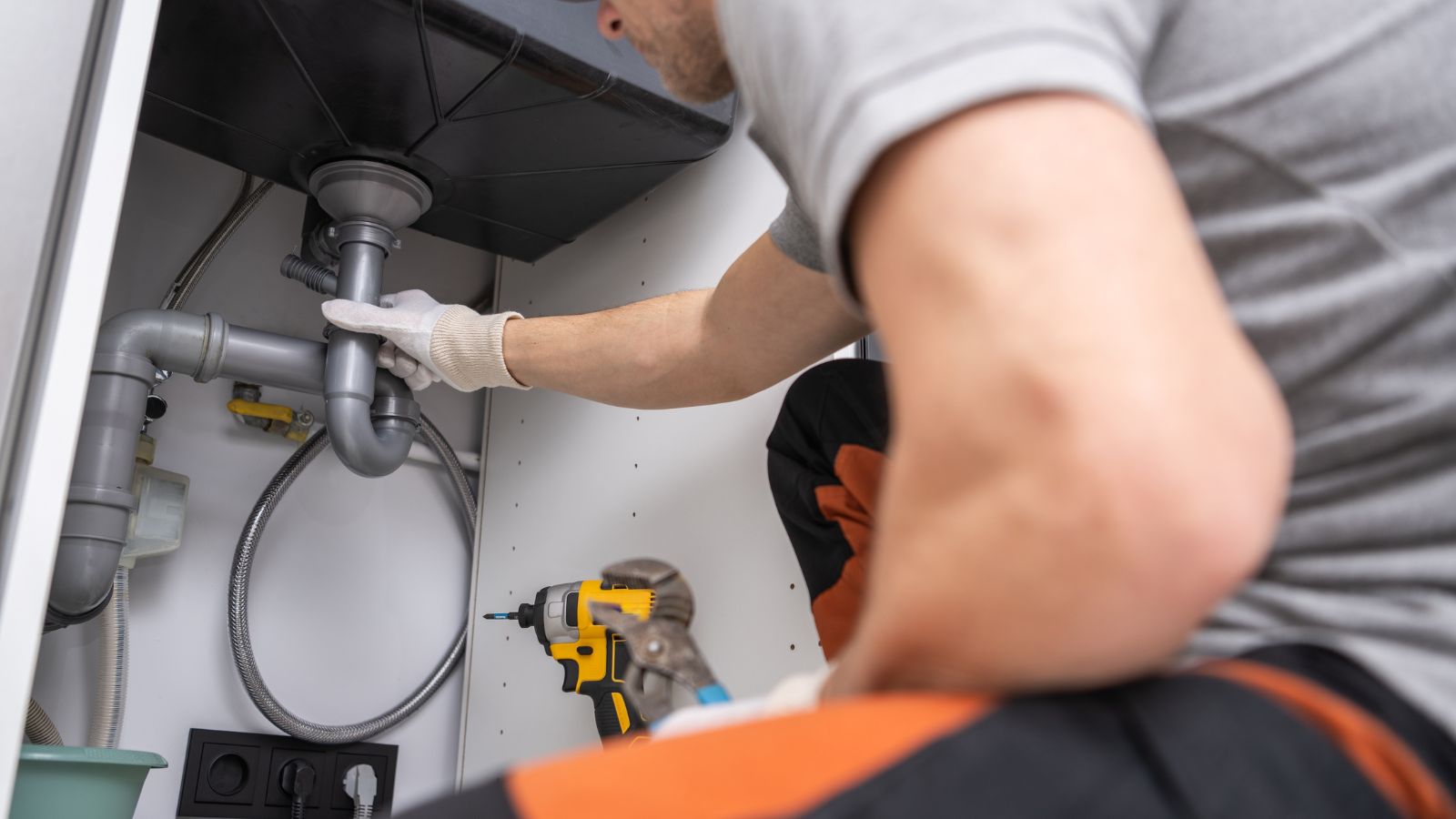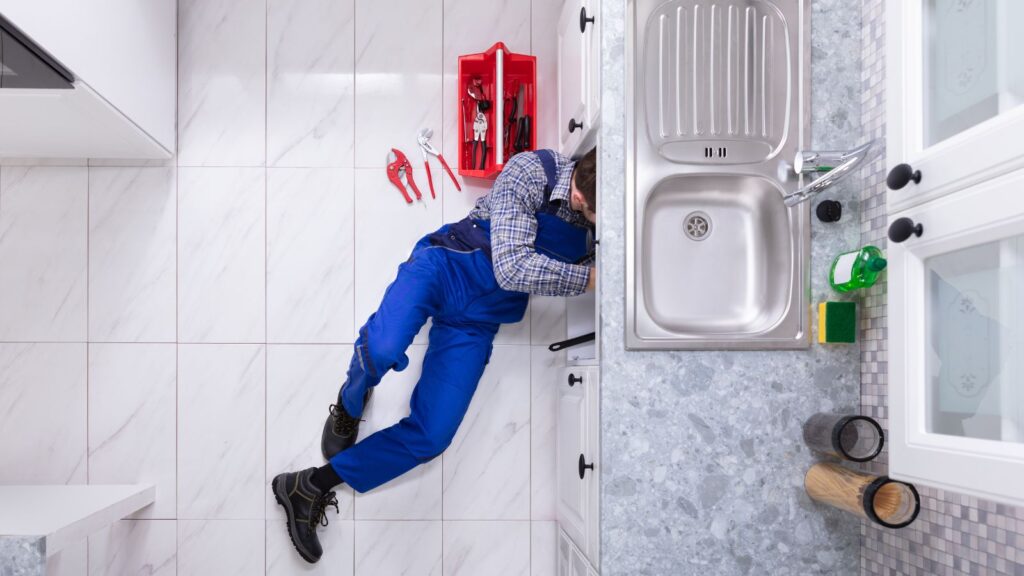When the garbage crusher or disposal malfunctions, it can disrupt the household function causing extreme frustrations and major inconvenience. When you notice signs of a problem, the task of troubleshooting can seem daunting. You can inspect minor wear or damaged parts to replace these.
You can also contact a sink garbage crusher repair service to perform routine inspections and maintenance to keep the unit efficient and functional. These companies catch developing issues in the early stages and address them before they can turn into major problems that require extensive repairs.
Before making a service call, it’s encouraged to attempt a DIIY fix for small or minor issues but if the problem persists, know that a quality and qualified expert can diagnosis the underlying cause for the issue and ensure further complication don’t arise down the road
Tips When Attempting DIY Repairs with Your Sink Garbage Crusher
It’s always recommended to use professional services when you’re uncertain of what’s wrong with your sink garbage crush after troubleshooting or if the problem is persistent despite efforts to correct small or minor issues.
Reputable service providers are highly trained and have the proper tools and equipment to diagnose and repair or replace the garbage disposal. Visit – How to Fix a Garbage Disposal That’s Not Working – for tips on fixing a disposal that’s not working. When you make attempt to troubleshoot and make minor fixes, the pros have a few guidelines they recommend you follow.
Safety should be the focus
Before starting to work on the sink garbage crusher, recognize the importance of safety. The power supply should be shut off to the machine to prevent the potential for electrical shock. You can either unplug the unit from the outlet or break the circuit that supplies power to the machine.
When working with the equipment, you should always wear work gloves to prevent injury in case you don’t have the system shut down properly.
The power supply
If the unit isn’t functional, there could be no power supply to the machine. It could have inadvertently been unplugged, or the breaker might have tripped. First, check the power cord and securely plug it in if it’s loose or out of the outlet. Then reset the circuit breaker if it has tripped.
Always be cautious when working around electricity to avoid potential for shock. Wear protective gear including gloves.Read here for tips on DIY fixes when your crusher is not functioning.
To avoid damage to the sink garbage crusher, consider the following recommendations.
Cold water
Garbage disposal can function seamlessly and prevent clogs, you must use a cold stream of water when running it. Cold water solidifies materials such as oil or grease that may inadvertently enter the system or chops food particles to readily flush them away.
The water should run for a few seconds before and after use to prevent clogs and ensure optimal operation.
Refrain from disposing of certain foods
Garbage disposals are designed to hand a range of food waste but there are a vast number of items that should not be put in the crusher. The following can create clogs and damage.
– Hard items: Hard materials like fruit pits, bones, shells should never go into the crusher. The blades are able to handle such hard materials leading to damage or dulling. These items should go in the trash bin.
– Fibrous debris: Onion skins, celery, corn husks and other fibrous foods should be composted or tossed in the trash bin. These can become tangled around the blades causing a jam and eventual blockage.
– Oil/grease: Pouring fat, oil, grease down the disposal is detrimental to the operation. These solidify over time and can build up in the machine and the pipe system creating clogs. These substances should be left to cool in a sealed container and tossed in the bin.
– Coffee grounds: It may seem more convenient to simply rinse coffee grounds into the sink garbage crusher, these build up to create clogs in the pipes. These are better disposed of either as compost or trash bin.
By keeping these materials out of disposal, you can prevent undue stress on the crusher, reduce the risk of blockages, and prevent the potential for damages. Remember the appropriate disposal methods whether composting, tossing in the trash bin, or another designated method.
Using the crusher properly will save from frequent repairs or the possibility of a replacement and ensure the highest performance for an extended longevity.
Consider the following regular maintenance tips as suggested by qualified service providers.
Prevention and proactive measures are always better than fixing major problems when they arise after the fact, and this is true with the sink garbage crusher as well.
Quality service providers suggest that you have regular maintenance to prolong the life cycle of your garbage disposal to prevent damages. Consider the following tips.

– Clean: The unit should be cleaned routinely by pouring a solution of baking soda a vinegar into the drain followed by boiling water to help remove any accumulations of debris and eliminate foul odors.
– Flush: Before and following use, flush for a few seconds with a stream of cold water to flush away al waste particles.
– Refrain from overloading: The crusher should not be overloaded with heavy amounts of food waste at one time. Feed it slowly and gradually to prevent stressing the motor and developing blockages.
– Citrus peels: To eliminate foul odors and keep the crusher smelling fresh, it’s recommended to use citrus peels ground up such as oranges or lemons. The oils naturally found in the peels fight nasty smells
These maintenance tips can keep the garbage crusher efficiently functioning and minimize the need for frequent repairs on the potential for a replacement sooner rather than later.
Final Thought
The tips presented here can help homeowners troubleshoot and, in some cases, solve common sink garbage crusher problems. However, there will be instances where the issue is more complex or will require specialized knowledge and expertise and you will need to reach out to a qualified and quality service provider.
These experienced technicians have the proper tools and experience to diagnose the underlying cause for the problem and repair an array of problems efficiently and effectively, so your daily routine is not disrupted. If you’re unsure or uncomfortable making DIY fixes, it’s always better to rely on trained experts.
